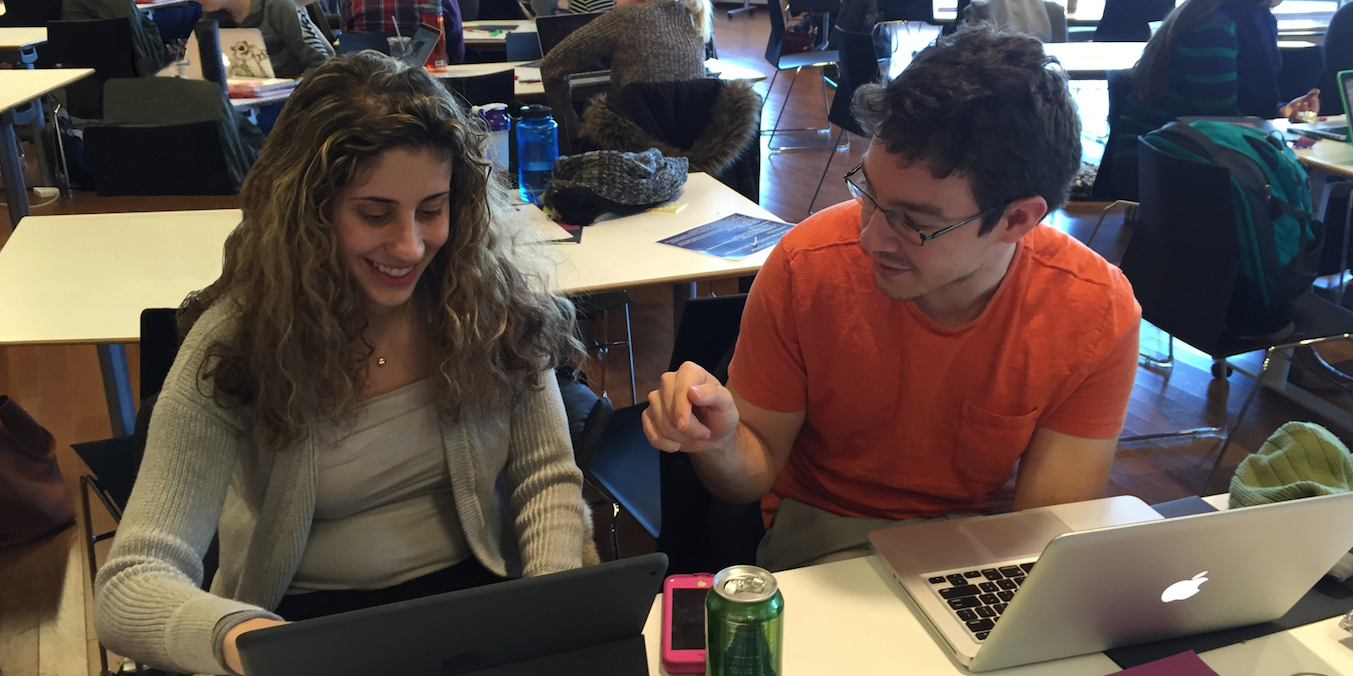Boston Public Schools Partners with Goalbook to Realize Rigor for All Students
Participants report significant growth in their ability to differentiate cognitively demanding instruction.

Share this post:
In order to meet the new, more rigorous learning objectives that aim to prepare students for college and their careers, teachers in Boston Public Schools have embraced Cognitively Demanding Tasks —CDTs for short— in their classrooms.
The difficulty in implementing rigorous learning tasks is due in large part to the myth that they are inherently difficult—and therefore exclusive—to only high-achieving students. Experts in the field, however, will argue that rigorous learning is inherently inclusive.
When the state standards and accountability movement began in the 1990’s, it was conceived as a way to make learning more rigorous in K-12 curricula in an effort to close the college and job readiness gap. In its most recent iteration, schools and districts have found the new state standards difficult to implement because of the perception that more rigorous learning equals harder tasks. This challenge was reflected in teachers’ perception of CDT’s prior to the training Goalbook led, as only 28% indicated they were comfortable with planning and implementing CDT’s in their classrooms.
Dr. William Schmidt, founder and director of the Center for the Study of Curriculum at Michigan State University, defines a rigorous curriculum as “focused, coherent, and appropriately (emphasis added) challenging.” Another leader in the field, Barbara Blackburn, explains that rigor means increasing learning expectations for all students while providing support appropriate to each student.
But rigorous content alone will not close the achievement gap. Robert J. Marzano and Michael D. Toth proposed in their 2014 publication Teaching for Rigor: A Call for a Critical Instructional Shift that paradigmatic shifts in instructional approach must also occur. The authors urged teachers to facilitate student learning by teaching higher-order problem-solving skills rather than simply dispensing content.
Across the nation, teachers are asked to deliver differentiated and rigorous instruction but few are shown how to do it. 20-year teacher Kathy Powers articulated the challenge that fellow teachers faced in her 2013 blog post for National Network of State Teachers of the Year, “What is lacking is the ‘how.’ How is teaching with the new standards different from teaching with the old?” Powers is among a growing chorus of teachers calling for teacher training to accompany the drastic shift in pedagogy as it relates to rigor in the classroom.
Goalbook partners with districts around the country, helping educators bridge the gap between the theory of academic rigor and its practical application in the classroom. Goalbook Pathways combines online instructional resources with onsite professional development, supporting educators with designing and planning rigorous instruction to meet the needs of all students.
Boston Public Schools (BPS) partnered with Goalbook to turn the theory of rigor into action. Goalbook has led a series of professional development workshops to support BPS educators with implementing differentiated instruction at multiple levels of rigor in highly diverse classrooms. Educators use and apply the online exemplars and resources in Goalbook Pathways to put together rigorous lessons that are accessible to all students. Goalbook Pathways helps BPS teachers find assessment items, reading passages, printable resources and strategies aligned to the Universal Design for Learning (UDL) framework and to the state standards. As a result, educators are better equipped to provide every student access to rigorous learning.
Teachers in Goalbook’s professional development workshops participated in interactive exercises that demonstrated ways to apply the UDL framework to identify student learning barriers. Using student personas based on real-world student profiles, teachers created learning strategies to ensure students with different needs could access Cognitively Demanding Tasks. The workshops modeled rigorous learning using Webb’s Depth of Knowledge (DOK) to illustrate the ‘how’ that teachers need in order to translate rigor into action in the classroom.
“I learned how to better support youth with their learning by centering my lessons around their needs,” said BPS teacher Carro H. “I learned to identify barriers, address them with different strategies and deepen student learning by assessing the rigor.”
BPS educators applauded the range of content and strategies found on Goalbook Pathways. Further, they were enthused that professional training was provided in conjunction with the resources. “I appreciate the range of ways used to engage us as learners,” said BPS teacher Deborah O., “I love the application to my own work.” By the end of the training, 92% of the teachers who attended now indicated that they felt comfortable implementing CDT’s, demonstrating tremendous growth from the 28% in the pre-survey.
In “Closing the Achievement Gap by Detracking,” Carrol Burris and Kevin Welner observed the impact of access on student outcomes, noting “When all students – those at the bottom as well as those on the top of the gap have access to first-class learning opportunities, all students’ achievement can rise.”
Boston Public Schools is proving that what was once considered unattainable is, in fact, achievable through providing quality professional development and support to its educators. They are a model for how applying best practices can shape instructional design. Goalbook has helped educators understand what rigorous learning entails and how to put it into practice. BPS educators are better equipped to prepare every single student for lifelong success. Goalbook’s partnership with Boston Public Schools dispels the myth that rigor and access are mutually exclusive.
